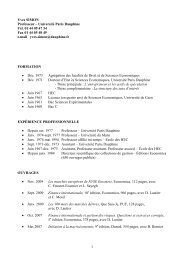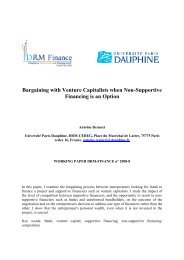Corporate governance and earnings management ... - CEREG
Corporate governance and earnings management ... - CEREG
Corporate governance and earnings management ... - CEREG
Create successful ePaper yourself
Turn your PDF publications into a flip-book with our unique Google optimized e-Paper software.
3.2. Phase 2: the “weakened” static phase (excluding France)<br />
This phase is identifiable in all the countries except France: unlike the other countries<br />
where accounting law is independent of tax law, from 1917 the situation in France was<br />
dominated by tax concerns, which prevented change of the same sort as in other countries.<br />
While the tax rule in the other countries was similar to the French rule of recognition without<br />
amortization, its influence was not as great as in France. France will therefore be examined<br />
separately (below). France was to return to a “normal” situation as domestic tax influence<br />
declined <strong>and</strong> international influence increased.<br />
3.2.1. Great Britain: the “weakened” static phase (1900 - 1990)<br />
During this phase, the purely static approaches (immediate expensing or rapid amortization<br />
against the year’s profits) increasingly fell from favor, while a “weakened” static approach<br />
involving charging goodwill to equity became more popular.<br />
The demise of the immediate expensing or rapid amortization practice is visible from the<br />
work of influential authors of the first half of the 20 th century: Dicksee (1897), Garke <strong>and</strong><br />
Fells (1922) <strong>and</strong> Lancaster (1927) all reject the practice of quick “writing down” against<br />
income.<br />
The dominant solution is to make goodwill disappear by charging it to equity, a practice<br />
that combines the basic static approach – goodwill is not an asset – with dividend distribution,<br />
depending on future profits.<br />
The idea of charging goodwill to equity comes from the leading author for the second half<br />
of the 19 th century, Dicksee (1897), who took a st<strong>and</strong> on the issue as early as 1897. This<br />
“king” of British accounting was caught between two conflicting views:<br />
- influenced by the static doctrine of the time, he accepts that goodwill is an asset of<br />
“arbitrary” value (1897, p. 45) that can be considered equivalent in nature to<br />
“Establishment expenses” (1897, p. 46) <strong>and</strong> must be treated with “the greatest caution”<br />
26



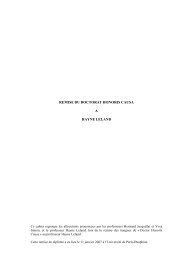
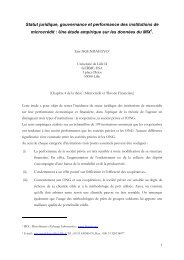
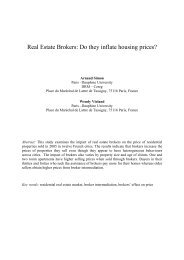
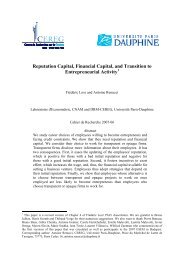
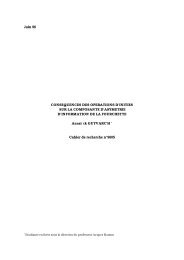
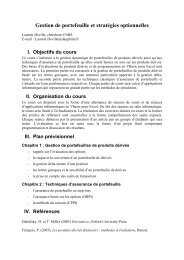
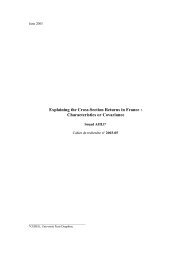
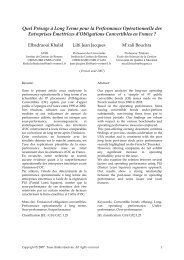
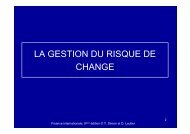
![& 6 ] ^ F ]^ - CEREG - Université Paris-Dauphine](https://img.yumpu.com/33326502/1/184x260/-6-f-cereg-universitac-paris-dauphine.jpg?quality=85)

